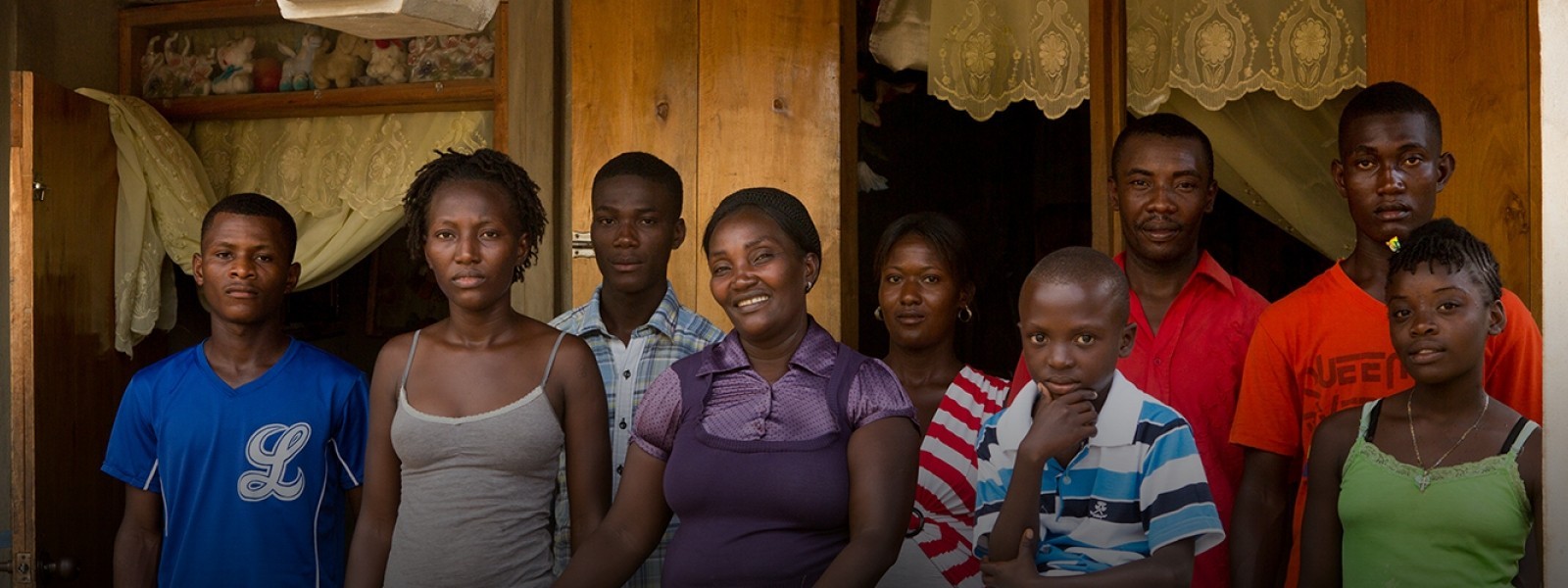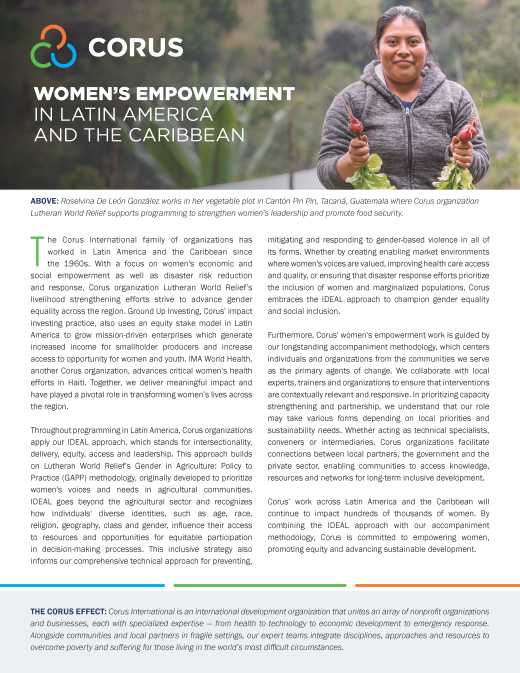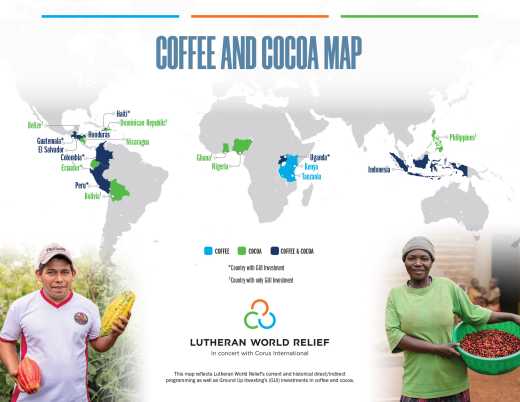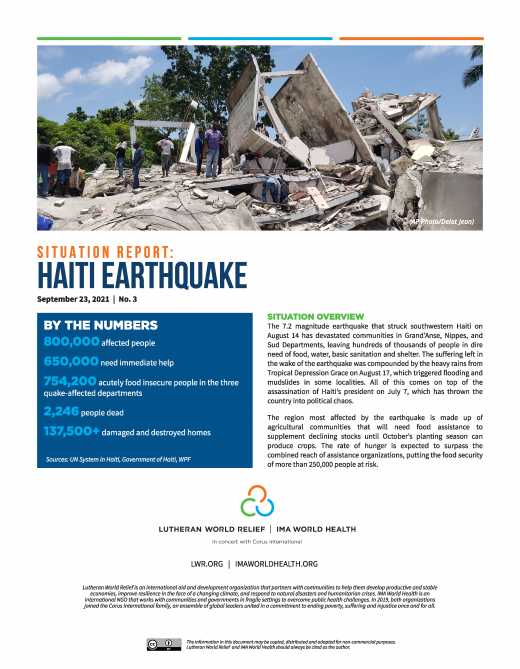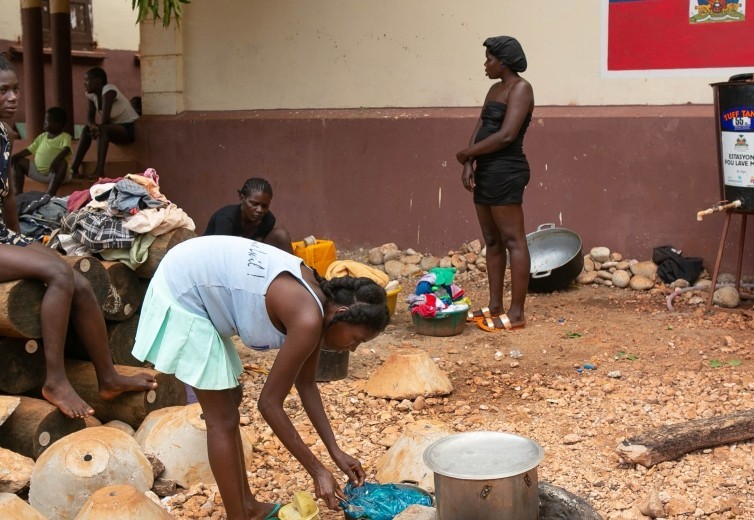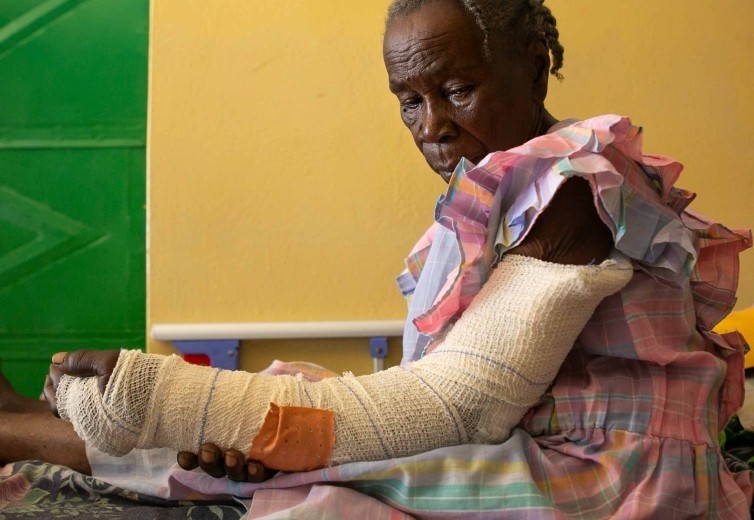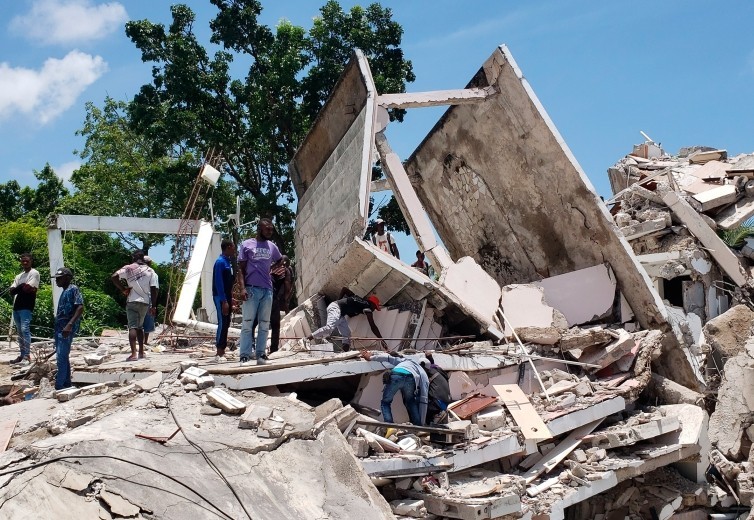Our Work in Haiti
LWR began working in Haiti in 1997 to promote rural development through projects that improve food security, gender equality, and the strength of smallholder farmers’ organizational capacity. More recently, LWR has responded to both the short- and long- term impacts of the major 2010 earthquake through its partners in the ACT Alliance emergency response network as well as through local nongovernmental organizations (NGOs) and farmers’ organizations. Currently, by working alongside various NGOs, producer associations and government agencies, LWR’s Haiti program improves farmers’ livelihoods in northern Haiti by increasing smallholder participation in value chains, improving food security and promoting crop diversification. Additionally, LWR works to strengthen business models of various farmers’ cooperatives and federations by linking them to external stakeholders making them more competitive in national and international markets.
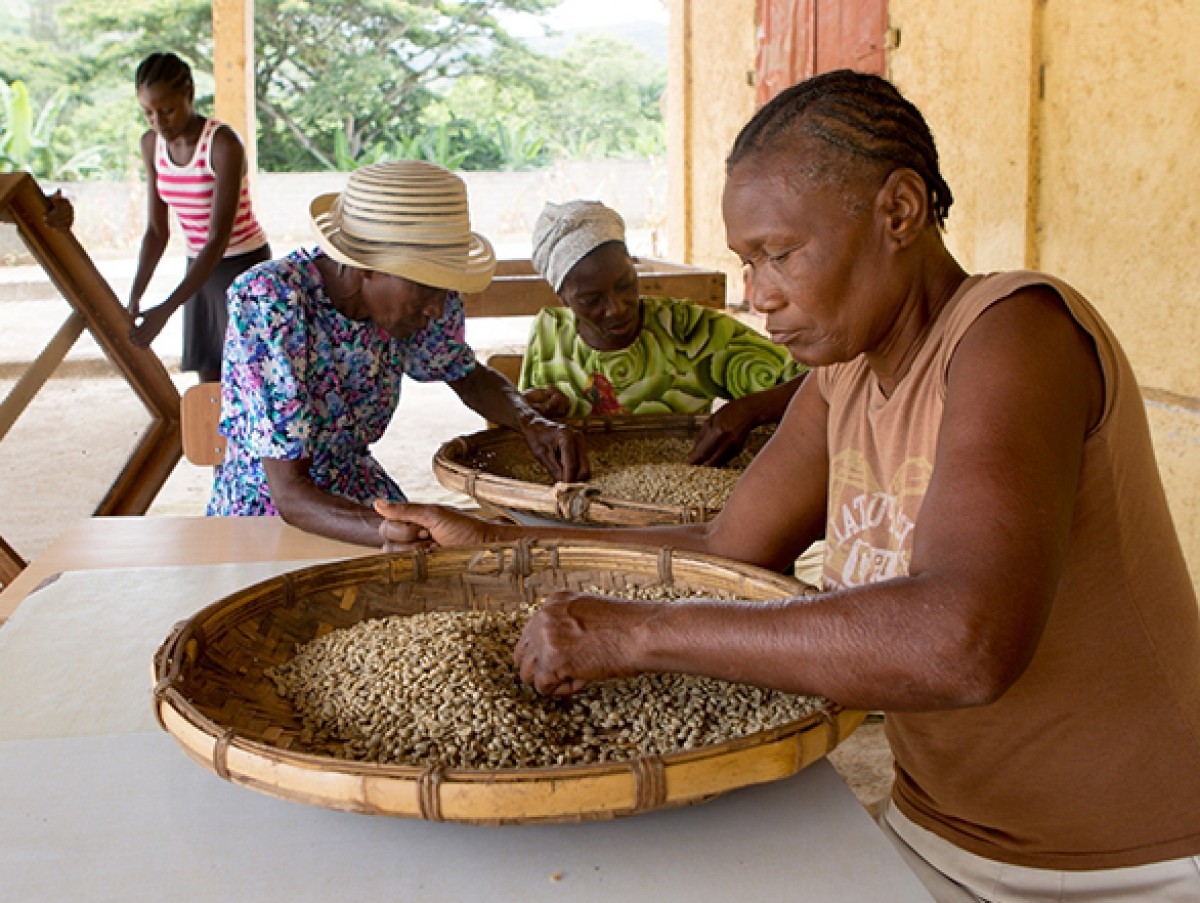
Agriculture value chains: Cocoa
Haiti smallholder cocoa farmers’ ability to capitalize on growing international demand for quality cocoa is hampered by low productivity and inadequate post-harvest processing both of which lower bean quality and quantity, as well as limit the capacity of farmer cooperatives to offer high-value marketplace linkages for members. Although most of Haiti’s smallholder cocoa farmers live at or below the poverty line, the potential to be lifted out of poverty by supplying the global cocoa market is ever increasing.
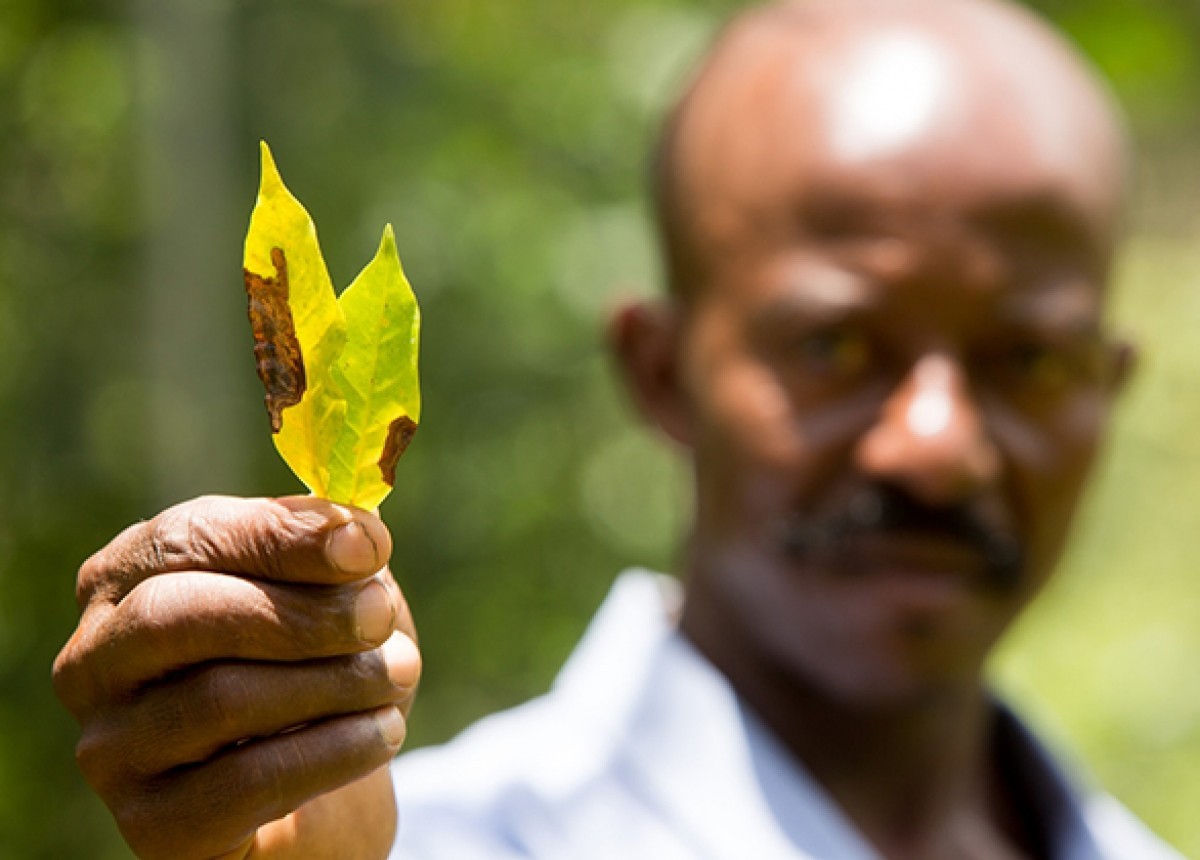
Climate-smart agriculture
Ensuring stable and resilient agricultural production and ecologically-sound natural resource management in the Northern corridor of Haiti is critical to mitigating and adapting to the effects of changing climates. LWR is promoting adaptation techniques necessary for a strong agricultural value chain that include local weather monitoring stations, adaptation training for farmers, and diversification of food crops to meet household consumption.
